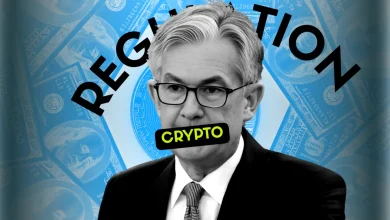
Despite rising Bitcoin prices and increasing mining difficulty, some regions, like British Columbia, maintain bans on new Bitcoin mining operations.
Some regions are adopting policies that promote energy-efficient Bitcoin mining, such as utilizing renewable energy sources.
Bitcoin mining profitability has improved in recent months, driven by increased hashprice and network hashrate.
Bitcoin is on an impressive rally, reaching a new all-time high of $107K today. As its value soars, so does the demand for Bitcoin, but not everyone is on board with the cryptocurrency’s most essential process: mining.
While many countries are focused on Bitcoin’s progress, some are still opposed to mining, which remains a critical factor in the cryptocurrency’s survival. As Bitcoin’s price rises, the issue is becoming even more complicated, and the demand for Bitcoin mining is expected to increase in the future.
The Bitcoin Mining Ban in British Columbia
In British Columbia (B.C.), the battle over Bitcoin mining continues. Even though Vancouver’s City Council passed a motion to make the city “Bitcoin-friendly,” B.C. is sticking to its ban on new Bitcoin mining operations until December 2025. The ban, which started in December 2022, was put in place to conserve energy for more environmentally sustainable projects. Conifex Timber, a company that planned to mine Bitcoin, challenged the ban in court. However, in early 2024, the B.C. Supreme Court upheld the ban.
B.C. relies on clean energy, with over 90% of its power coming from hydroelectric sources. Vancouver’s motion, introduced by Mayor Ken Sim, highlighted Bitcoin’s financial benefits, but it doesn’t change mining regulations because electricity distribution is under provincial control. B.C. is currently working on a permanent policy for crypto mining.
New Policy Changes and Key Developments
Earlier this year, B.C. updated the Energy Statutes Amendment Act, giving the provincial government direct control over electricity use for crypto mining. This change bypasses the BC Utilities Commission. It came after BC Hydro temporarily suspended Bitcoin mining connections to the provincial grid.
Conifex Timber’s legal challenge argued that the ban was unfair, but the court ruled in favor of the province. This case raises an important question: if high-energy industries like Bitcoin mining face such regulations, could other industries — like AI or Liquefied Natural Gas (LNG) — face similar scrutiny?
The Green Party raised this concern during the legislative debate, suggesting these sectors use a lot of energy with limited economic benefits.
Bitcoin Mining Laws Across the U.S. and Canada
B.C.’s approach to Bitcoin mining is similar to trends in other regions. For example, New York State has a mining moratorium with exceptions for renewable energy projects. On the other hand, states like Arkansas and Montana have passed laws to protect Bitcoin miners from discrimination. Pennsylvania recently lifted its mining ban to focus on energy conservation efforts instead.
Bitcoin Mining Profitability in December
Despite the regulatory challenges, Bitcoin mining remains profitable. According to a recent report by JPMorgan, Bitcoin’s hashprice — a measure of daily mining earnings — increased by 5% in December compared to November. The Bitcoin network’s hashrate also rose by 6% in December, reaching an average of 773 exahashes per second (EH/s).
In the first two weeks of December, miners earned around $57,300 in daily block reward revenue per EH/s, the highest it’s been in seven months, though still 40% below levels before the last halving.
Growth in U.S. Bitcoin Miners
The combined hashrate of 14 U.S.-listed miners tracked by JPMorgan surged 94% year-to-date, reaching 222 EH/s, which makes up 29% of the global network. Despite this growth, their market cap fell by 4%, or $1.5 billion, even though it had increased by 50% after the U.S. election.
These miners are trading at about twice their share of the block reward opportunity, reflecting the complex relationship between profitability, market conditions, and regulatory hurdles.
Never Miss a Beat in the Crypto World!
Stay ahead with breaking news, expert analysis, and real-time updates on the latest trends in Bitcoin, altcoins, DeFi, NFTs, and more.
With more players entering the Bitcoin mining arena and global regulations tightening, the road ahead for the cryptocurrency looks both promising and uncertain.








